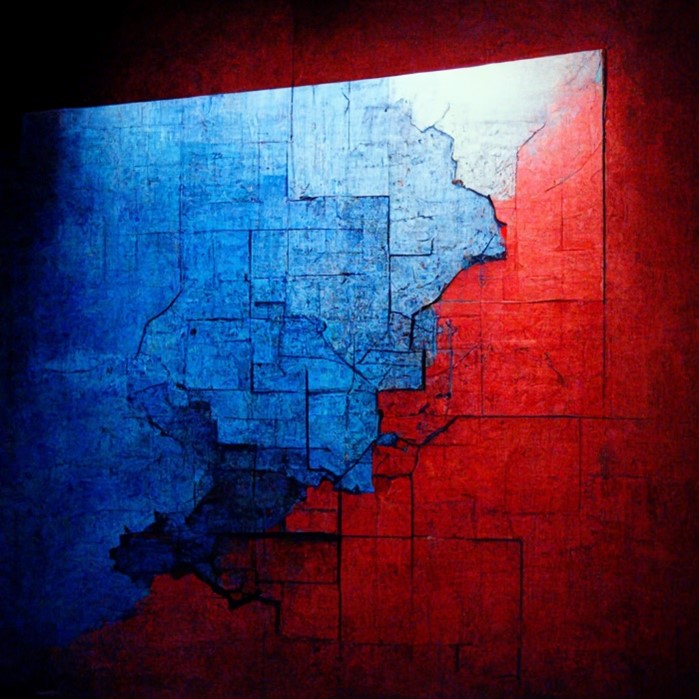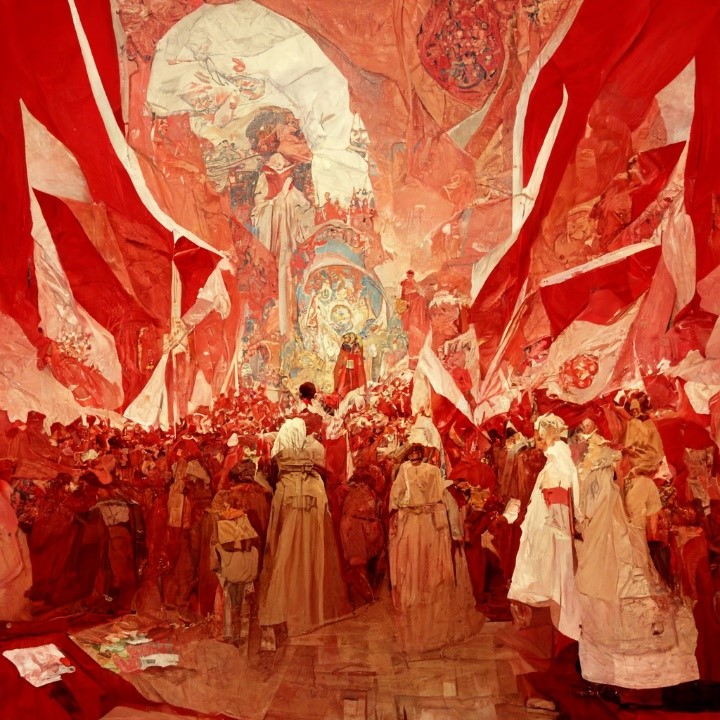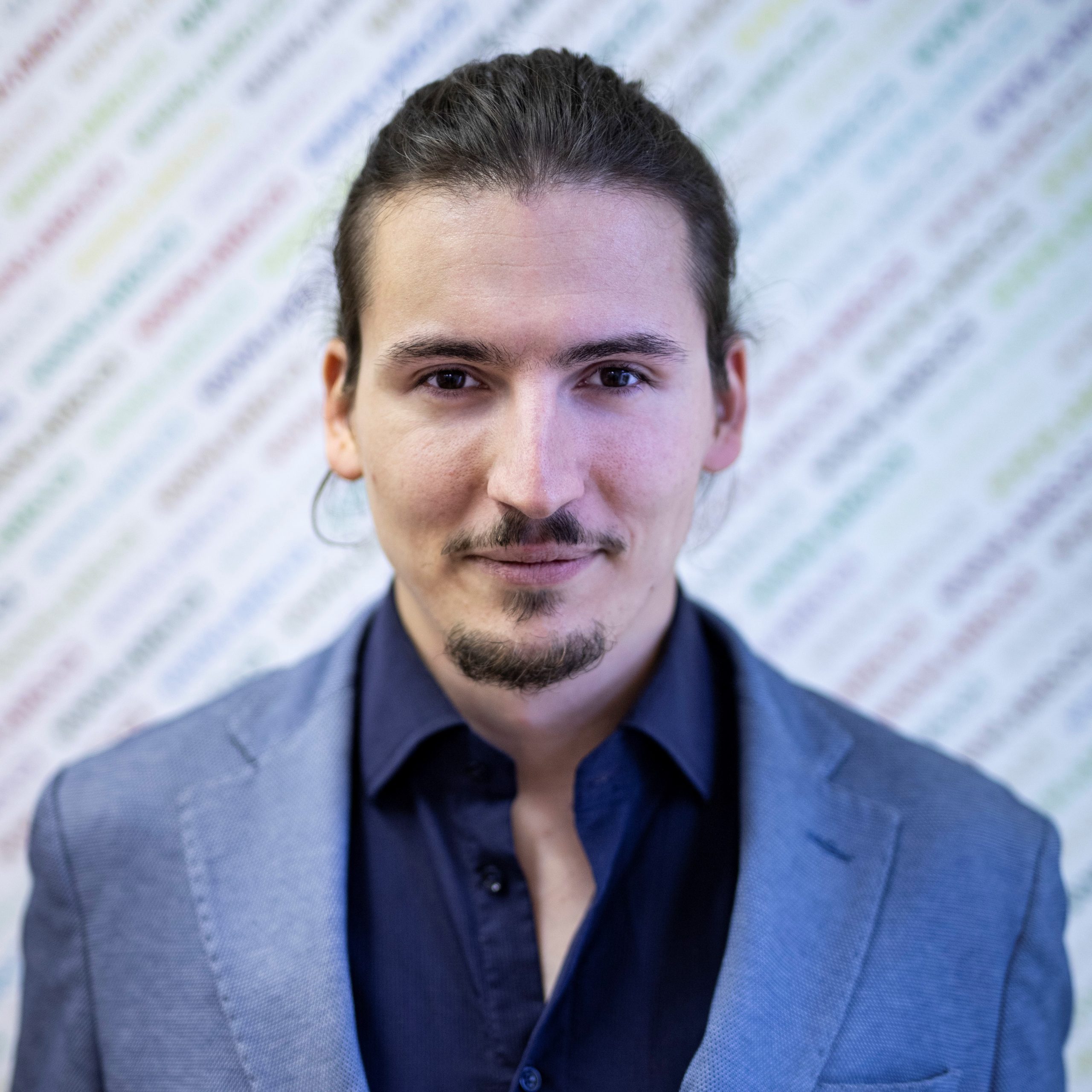Voices from the Sylff Community
Sep 22, 2023
Popular Identity of the Czech Political “People”
Democracy rests on the idea of popular sovereignty, but how can the collective will of a social construct called “people” be accurately ascertained? Lukáš Lev Červinka (Charles University, 2021) used an SRG award to conduct a survey on Czech popular identity, finding unexpectedly strong identification with state actors and also some disturbing corollaries about ethnocentric nationalism.
* * *
All concepts of modern democracy regard self-governance by the people as a cornerstone of this system of government; without it, there is no democracy. However, even though democracy presupposes the existence of a “people” expressing its collective will, claims to represent such will are usually treated with caution, given that “good” dictators and authoritarian régimes want to assert that their policies reflect the general will (volonté générale) of the people.
People as a collective is an elusive beast whose nature is tricky to identify, but at the same time, it is generally assumed that if there is democracy, then there must be people as a ruling entity—a collective with a will, sense of membership, values, memory, goals, and everything else that is usually associated with a collective or group. However, how can we define “people” without succumbing to oversimplification, generalization, or even mythicization?
Research Focus and Objectives
My first goal in launching the Establishment Research Project,[1] supported by a Syllf fellowship, was to find a theoretical framework that would enable me to treat people as a collective and study its inner processes and values. This led me to the social systems theory of Niklas Luhmann,[2] the social imaginaries of Charles Taylor,[3] and the imagined communities of Benedict Anderson.[4] By adapting those theories, I have conceptualized “people” as an autopoietic organizational system—in other words, a social construct that is determined by its decisions. The people as a democratic sovereign is, therefore, not to be understood as individual citizens or inhabitants but as an imagined community of those who participate in its self-governance by making the decisions through which their identity as a collective is established.
In my Sylff-supported PhD thesis on Anti-Establishment Political Parties: Threat to Democracy or Chance for Its New Equilibrium, written at the Faculty of Law of Charles University in the Czech Republic and at Ca’ Foscari University in Venice, Italy, I concluded that the decisions that articulate the popular identity of a people are not only participation in elections, referenda, demonstrations, strikes, and, sometimes, revolutions but also appropriation of cultural products, such as songs and the constitution. Through these decisions, the “people” can manifest themselves as a collective body and create an identity that articulates their social demands and values.
To test the viability of this theory and determine whether it can be used in practice, I have conducted a survey, funded with an SRG award from the Sylff Association, to explore which actors articulate the popular image of the Czech people, what decisions determine their identity, and on which values this identity is built.
Observations
When surveying which actors articulate the image of the Czech people, the most positive score (the difference between the percentage answering that an actor articulates values of the Czech people and the percentage saying it does not) was +44.8 received by “scholars and scientists.” This is of little surprise, considering the technocratic nature of Czech society, which places a high value on formal education, academic titles, and expert knowledge. This is supported by the much lower score (+14.1) received by “experts outside of academia.” Quite striking, though, was the high scores received by actors of the state, such as “courts of justice,” “police,” “armed forces,” and the “president of the republic” (see table below).
How Well Do the Following Actors Articulate the Values of the Czech People?
|
Actor |
Score |
|
Political parties |
−20.4 |
|
Scholars and scientists |
+44.8 |
|
Religious organizations |
−37.5 |
|
Experts outside academia |
+14.1 |
|
Public media |
+15.0 |
|
Private media |
−18.9 |
|
Artists |
+9.2 |
|
Trade unions |
+1.4 |
|
NGOs |
−5.0 |
|
Courts of justice |
+31.1 |
|
Police |
+37.7 |
|
Armed forces |
+37.3 |
|
President of the republic |
+45.0 |
|
Note: Scores are the percentage of respondents identifying an actor as articulating the values of the Czech people minus the percentage saying it does not. |
|
Interestingly, the answers regarding the values represented by such public holidays as New Year’s Day, Czech Statehood Day, and May Day suggest not only a strong nonreligious (or even antireligious) nature of the Czech popular identity but also people’s strong identification with state actors—despite the fact they are often depicted as an enemy of the people in Czech pop culture. This demonstrates that the Czech state is considered a tool of the Czech people in articulating their social demands and defending their interests.

An image generated by using the prompt, “Czech state-people intertwinning,” by Midjourney (https://docs.midjourney.com/).
The close relationship between the Czech state and Czech identity is not in itself bad, but survey results using the modified Bogardus social distance scale[5] showed some disturbing patterns. When asked whether they would allow a Czech citizen of Roma ethnicity to stand for the office of the president of the republic, only 82.1 % of respondents said yes. The results were even more worrying for a Czech citizen of Ukrainian ethnicity (65.5 %) and a Czech citizen who cannot speak Czech (51.1 %).

An image generated by using the prompt, “Ethnic-centred Czech people,” by Midjourney (https://docs.midjourney.com/).
Finally, when asked where to put the Czech people regarding their values, most of the respondents chose the Visegrad Group countries (Czechia, Poland, Slovakia, and Hungary), rather than the Euroatlantic space. This, unfortunately, supports the argument that the Czech people still find themselves inside the post-Habsburg space of conservative nationalism and bureaucratic étatism.
The SRG-funded survey revealed not only the usefulness of the theoretical concept of “people” as an organizational system and a living, democratic sovereign but also the disturbing, ethnicity-centred nature of the Czech popular identity and its deep intertwining with the structures of the Czech state.
[1] More about the project at https://establishment.cz
[2] Niklas Luhmann, Social Systems (Stanford: Stanford University Press, 1995) .
[3] Charles Taylor, Modern Social Imaginaries, 2nd ed. (Durham and London: Duke University Press, 2004).
[4] Benedict Anderson, Imagined Communities: Reflections on the Origin and Spread of Nationalism (London, New York: Verso, 2006).
[5] The Bogardus scale was adapted to show the social distance of excluded communities within Czech society, that is, those not regarded as part of Czech self-governance.
